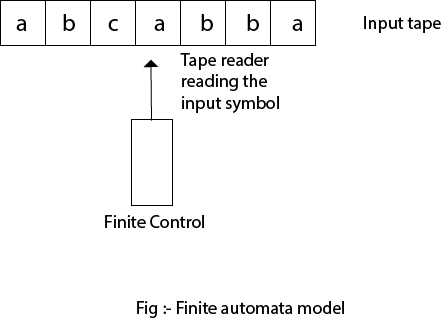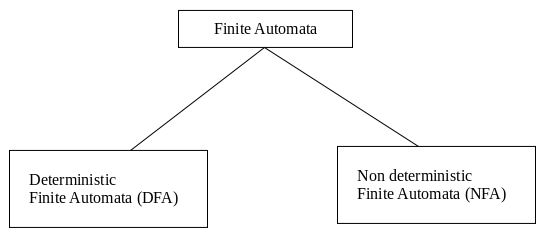Finite Automata
Formal Definition of FAA finite automaton is a collection of 5-tuple (Q, ∑, δ, q0, F), where: Finite Automata Model:Finite automata can be represented by input tape and finite control. Input tape: It is a linear tape having some number of cells. Each input symbol is placed in each cell. Finite control: The finite control decides the next state on receiving particular input from input tape. The tape reader reads the cells one by one from left to right, and at a time only one input symbol is read. 
Types of Automata:There are two types of finite automata:

1. DFA DFA refers to deterministic finite automata. Deterministic refers to the uniqueness of the computation. In the DFA, the machine goes to one state only for a particular input character. DFA does not accept the null move. 2. NFA NFA stands for non-deterministic finite automata. It is used to transmit any number of states for a particular input. It can accept the null move. Some important points about DFA and NFA:
Next TopicTransition Diagram
|
 For Videos Join Our Youtube Channel: Join Now
For Videos Join Our Youtube Channel: Join Now
Feedback
- Send your Feedback to [email protected]
Help Others, Please Share










